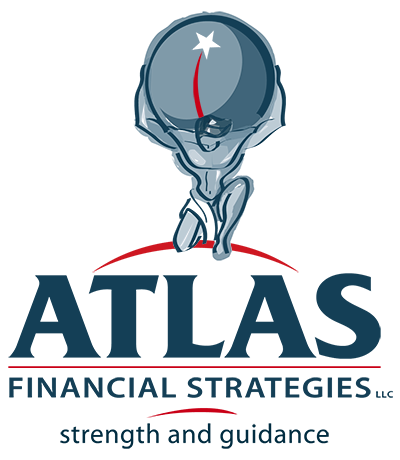- Our Process
- Video Learning Library
- Third Party Resources
- In the News
- Contact
- Investment Team
- Informational Guides
- Client Forms
- Our Firm
- I Just Sold My Business—Now What?
- How to Delay Withdrawals on Your Retirement Accounts
- Blog
- Investment Management
- Preparing Your Business for Sale: Navigating Due Diligence
- The Nautilus Group®
- Special Needs Planning
- Navigating Income Tax
- Life plan for your business®
- What You're Failing to Consider About Your Future Part I: Business Owners
- What You're Failing to Consider About Your Future Part II: Retirees
- What You're Failing to Consider About Your Future Part III: Young Professionals
- How Much Life Insurance Do I need?
- What You Should Know About Your Emergency Fund
- How Pre- and Post-Tax Contributions Affect Your Retirement
- Should You Do a Roth Conversion?
- Managing Debt: The Snowball vs. The Avalanche
- Your Extra Cash: Is It Better to Pay Off Debts or Invest More Money?
- Student Loans: What's the Best Way to Pay Them Off?
- Maximizing Your Money: Find the Most Efficient Use of Your Dollar
- Planning Post-Pandemic: Survival Tips for Business Owners
- Preparing Your Business for Sale: Are You Ready?
- Preparing Your Business for Sale: Pre-Sale Task List
- Preparing Your Business for Sale: Questions to Ask Potential Buyers
- Preparing Your Business for Sale: What to do When Things Get Serious
- When a Retirement and Legacy Arrangement (RALA) Makes Sense for You
- Know Your Numbers: The Importance of Creating Cash Management Systems Before Growth
- Tax Strategies for Business Owners
- Your Growing Business: Hiring the Right People
- Creating an Emergency Succession Plan to Protect Your Business
- Estate Planning: Equal Isn't Always Fair
- What’s the Greatest Gift You Can Leave Your Family? A Plan for Future Financial Success
Your Extra Cash: Is It Better to Pay Off Debts or Invest More Money?What’s the Best Use of Your Dollar?Paying off a debt—no matter how small—is always a gratifying accomplishment. It means you have one less bill to pay and you can allocate more money to other (potentially more fun) expenses. You’re not obligated to a creditor, and you get to decide where your money goes. I’ve had a lot of clients proudly tell me they’re making additional mortgage payments to save money in interest and pay off their homes sooner. But while that’s an admirable goal, sometimes I have to challenge their thinking—because the right question to ask is not “Is that a good use of your money?” but, “Is that the best use of your money? In fact, that’s the question you should ask yourself when making any financial decision—what’s the best use of your dollar? In the case of these homeowners, spending an extra $3,000 to $5,000 and saving two or three percent in interest likely won’t bring them the same return that investing the money could. Because if they invested that money and earned anything more than three percent, they’d end up with more money than if they chose to pay off their mortgage sooner. (And that’s without considering that once their home is paid off, they can no longer deduct the mortgage interest.) So while paying off debt is an admirable goal (and one to aim for at some point), it may not be the best use of your money today. Here are some other questions to ask yourself when considering whether to pay off debt or invest more cash: Will You Need Extra Cash Soon?Paying down a debt might reduce your interest payments, but sometimes it ties up your money in a way that impedes your short- or long-term goals. Consider your mortgage—once you make those payments, your money rests solely in the equity of your home—and that’s not money you can simply withdraw when you need it. Instead, if you want to leverage the cash for a renovation project or other major expense, you have three options:
Conversely, if you invest that money elsewhere, you’ll have options to use it later without asking the bank’s permission. Something else to note is that even if you decide to ask for a line of credit or do a cash-out refinance, the bank can say no. And if they say yes, you have to pay back the loan with interest on their terms. That’s not to say these are completely impractical options, but they’re things you should consider if you think you may need the extra cash soon. Do You Want a Smaller Guarantee or a Riskier Reward?Any investment, whether in the stock market or a retirement account, involves some element of risk. Granted, these risks come with the reasonable assumption that you’ll make a greater return on your investment than by leaving the money in your bank account or paying off a low-interest debt, but at the end of the day, there are no guarantees. That’s one advantage to paying down a debt—you know that when you pay it off, you will no longer be obligated to that “bill” or its interest rate. This, like many factors, is a matter of circumstance and personality—some people would rather have the certainty of paying off a debt than face the odds (no matter how good those odds are) of making a higher return by investing the money. Will You Actually Invest Your Money?Looking at sheer numbers, choosing to invest rather than pay off a debt can often be more financially rewarding, but this strategy only works if you follow through with it. That might seem like an obvious point, but it’s easy to forget your goals if you simply leave the extra money in your bank account. Without a system in place (be it automatic withdrawals or regular meetings with your advisor) to allocate that cash toward your goals, you might end up spending it in ways you never planned. That’s why no matter how you decide to leverage your extra cash, it’s best to create a strategy that helps you enforce your objectives—an automated one, if possible. What Gives You the Most Peace of Mind?Debt is an emotional subject for many people, and that plays a huge role in deciding how to spend money. When we talk with clients about their financial situation, our job is always to explain how everything works so they can weigh the pros and cons of each decision. Sometimes we’ll describe this “debt versus investments” concept to two different people (noting that, in the long run, a person could potentially lose money by paying off a house rather than investing) and one person will choose to invest the money while the other will say, “I hear you, but I’d still rather pay off my mortgage.” And both of these answers are perfectly fine. Ultimately, you have to do what’s best for you—because it’s not just about numbers; it’s about your peace of mind. Making an educated decision is the best way to achieve that peace—because when you know exactly what you’re doing and why, you can make your choice confidently, knowing you’re acting on sound knowledge rather than hearsay or gut instinct. Ask a Financial AdviserIf you have questions or you’d like to discuss your situation with us, please let us know. You can give us a call or schedule a consultation by clicking the button below. |
 Quick Links
Quick Links
